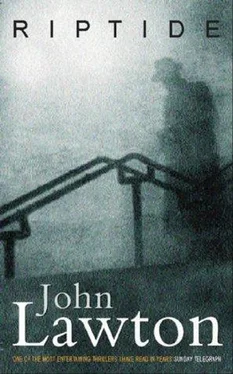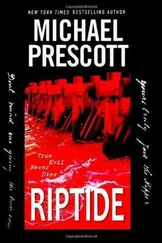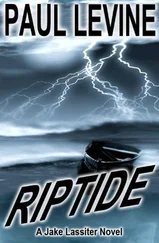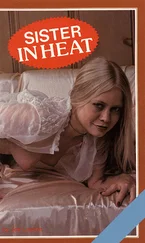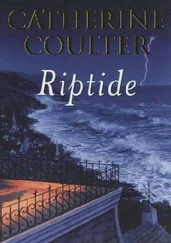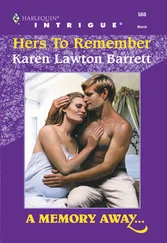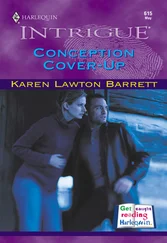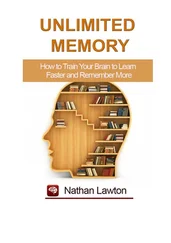‘How long would it take to get to Islington?’
‘By taxi, sir?’
‘Sure.’
The clerk spun the map to face him. Cal lifted his finger.
‘Less than half an hour. Perhaps fifteen or twenty minutes.’
It was 10.05 now. Cal ran to the front door and told the doorman to hail him a cab. He’d be lucky to make it. Don’t be late, Walter had written. But better late than never.
Late it was. In front of King’s Cross railway station the damage of May nth was still being patched up. A water main exposed-a deep trench in the road, a dozen workmen up to their ankles in brimming water, a lone policeman waving at the traffic and directing them all south, into Finsbury, a loop past Farringdon station, through Clerkenwell and into Islington from the other side. Cal sat with the street map open, trying to follow their route by the frequent flick of his cigarette lighter, glancing all too often at his watch.
Late it was, and later. At 10.40 he paid off the cabby by Collins’ Music Hall and found Coburn Place, bent between the two public houses, zig-zagging right and left. He almost fell down the open cellar hatch of the Hand and Racquet. He struck his lighter with the ball of his thumb, held the cap open against the spring and moved slowly on with his left hand on the bricks as though to trace out his trail would somehow lead him back like Ariadne’s thread.
Flickering, miasmic light-enough to see five paces ahead; enough, too, to see the leather soles of a pair of shoes that lay on the cobblestones not twenty feet beyond the cellar. He dropped the lighter-got down on his hands and knees and groped about on the stones. Found it, struck the flint and struck it again, and in the yellow light found himself looking into the dead eyes of Walter Stilton.
‘Jesus Christ.’
He let his thumb off the lighter-sank into darkness, wondering if he’d seen what he knew he’d seen, wondering if he had the courage to look again.
He flicked the flint. Walter was lying on his front down the length of the alley-the right side of his face lay in a pool of blood, the left looked up at Cal. One arm outstretched, the other lost beneath the body. His hat lay a few feet ahead, angled against the wall, as though it had spun off him like a loose hubcap. And there was no doubt about it. The man was dead. His third encounter with violent death, and already Cal knew the sight and fact of death with unquestioning certainty.
The pool of blood was still spreading. Cal’s knees were wet with it. He got to his feet. Heard his heart roar in his ears, a pulse as loud as a jackhammer throbbing in his head. Above it all he heard the sound of a lavatory flush, saw a brief flash of light as a door opened up ahead of him, and a man emerge from the gents buttoning up his flies. Whoever he was he had not seen Cal-he pulled on the back door of the Green Man and vanished.
Cal followed. In the light of the pub he looked down at himself, Blood on his trousers and on the hem of his jacket. All over his hands. He wiped them on his trousers. Surely everyone was looking at him? Surely everyone could see him, dressed like a scarecrow, drenched in blood? In the fug of tobacco smoke and the roar of people chattering, heads turned at the sight of a stranger, but none of them seemed to think him worth a second glance. One woman looked him up and down as though appraising him, and still didn’t see the blood.
He made his way to the bar. The barman was busy. Cal tried to seize his attention, and found his voice had gone. He managed to say ‘Excuse me’ in a shrill, unnatural voice, and was told to ‘Hold yer ‘orses. Can’t you see I’m on me own?’
It seemed like an age. The barman served two other men and leaned on one elbow in front of Cal.
‘Right, young man. What’s yer ‘urry?’
‘Phone,’ Cal squeaked. ‘I need a phone.’
The barman reached under the pumps and stuck a bakelite telephone on the bar.
‘A drink while you’re ‘ere?’
Cal asked for a brandy and dialled 999.
‘Police, Fire or Ambulance?’ said a young woman.
‘Police,’ Cal croaked.
The barman was looking at him now; at the optics, his back to Cal, he turned at the word ‘police’.
The police operator came on. Cal realised he had no idea what to say. He knew exactly what he meant but he could not think of the form of words.
‘Stilton,’ he said almost involuntarily.
‘Beg pardon, sir?’
‘Chief Inspector Stilton’s been…’
The barman seemed to have frozen, his hand still holding Cal’s glass of brandy under the optic. The next word would surely galvanize him.
‘Murdered. He’s been murdered. Coburn Place. Islington. Behind the Green Man.’
The barman dropped the glass. The roar of the night-time drinking crowd stopped as though it had been one voice. By the time the glass hit the floor, it tinkled into a cavernous silence.
‘And you are?’
‘I’m sorry?’
‘Your name, caller, your name.’
But they were all staring at him now. A woman not six feet away was looking from his bloody trousers to his face and back again, mouth open, silent. She was not silent for long. She screamed. The roar of the crowd returned-the volume doubled. Cal slowly put the phone back on the cradle and headed for the door. The crowd parted in front of him. All except one big man, stood between him and the door, inspired by some civic sense or the pure, unsullied bravado of the drunk.
‘Gertcha.’
‘Excuse me,’ Cal said softy. ‘My friend just died.’
‘Gertcha,’ said the drunk, and Cal dropped him with a righthander to the belly and pushed him aside.
He knelt by the body. A dozen heads crowded the doorway, a shaft of light cutting into the blackness of the alley. Walter had to be covered. As ever, he was wearing his brown mac regardless of the weather, but to prise it off him seemed so disrespectful. Cal took out the street map, unfolded it to its fullest and spread London, all the way from Brentford to Limehouse, from Highgate to Streatharn, over Walter’s head and back. It seemed fitting. A shroud for a London bobby.
He ignored the gathering crowd at the back door of the pub, oblivious to its mounting murmurs and wept silently for the life of Walter Stilton. Late was never. He’d let the man down. He’d let somebody kill him. He sat motionless, his back against the wall, his forearms across his knees, eyes fixed on Stilton’s body, somewhere around Chelsea Bridge. Walter was dead. And dead was all. Dead was everything. Total. Cal had died with him. His death was all-embracing.
An age passed. He found his tears dried. A torch flickered up the alley from the street end, feet neatly sidestepping the open cellar, and then the beam tilted down into his face. Then the man knelt down next to him.
‘Are you OK?’
‘What?’
‘You’re not hurt?’
Cal knew the voice, and as he leaned in knew the face. It was the same young copper he and Stilton had encountered in Hoxton Lane. Sergeant Troy.
‘No. No. It’s Walter. He’s dead.’
Troy peeled back the map to look at the face and head.
‘Gunshot. Side of the head,’ he said too matter-of-factly, then added, ‘He’d’ve felt nothing, you know.’
‘Sure,’ Cal whispered pointlessly.
Troy stood up. Held his warrant card in front of the torch. ‘Where’s the landlord?’ he cried to the crowd and the barman shuffled forward, pale of face, a glass cloth still in his hands.
‘That’ll be me,’ he said, as though he doubted it himself. ‘Atterbury. George Atterbury. Green Man.’
Troy addressed him with a calm no-one else seemed to feel.
‘Call an ambulance,’ he said. ‘And then call Scotland Yard. Whitehall 1212. Ask for Special Branch and report the death of Chief Inspector Stilton. Gottit?’
Читать дальше
